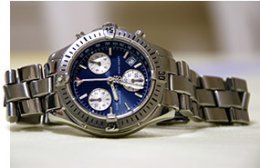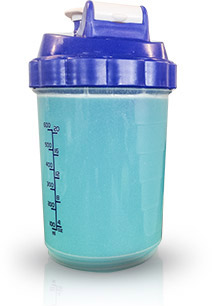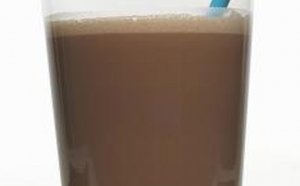
Carbs before or after workout
 I have a confession to make: I like to eat candy after I work out! If you've followed any of my diets, you already know I'm a big proponent of eating high-glycemic, fast-digesting carbs immediately after my workouts.
I have a confession to make: I like to eat candy after I work out! If you've followed any of my diets, you already know I'm a big proponent of eating high-glycemic, fast-digesting carbs immediately after my workouts.
Aside from specific low-carb phases, most of the nutrition programs I write include post-workout carbs alongside supplements like protein, creatine, beta-alanine, carnitine, and betaine. I prefer dextrose as my post-workout carb source, which can be found in supplements like Post JYM, or in tasty sweets like Pixy Stix and gummy bears.
I've received a lot of questions lately about the importance of post-workout carbs. Some people are confused about how carbs factor into recovery and growth, while others worry that carbs will spur fat gain. If you're curious about the power of post-workout carbs, this article will help you understand their place in your recovery regimen.
Refuel Your Glycogen—Fast
The main reason to consume carbs post-workout is to replenish the muscle glycogen that you burned during your workout. As you train, your main fuel source is muscle glycogen. Glycogen is the storage form of glucose. It is composed of long strings of glucose molecules with numerous branches.
The glucose break from the glycogen chain as needed in order to generate ATP, which transports chemical energy and is crucial for muscle contractions. Research confirms that the best way to replenish muscle glycogen stores after workouts is to consume high-glycemic (fast-digesting) carbs as soon as possible.
Research confirms that the best way to replenish muscle glycogen stores after workouts is to consume high-glycemic (fast-digesting) carbs as soon as possible.
Some "experts" argue that during a typical weight-lifting workout, you don't burn up enough glycogen to be concerned about replenishing it. To that I say, "What?!" When you deplete any amount of muscle glycogen, you should be concerned with replacing it—especially if muscle growth is your main goal. If a trainer claims people don't need to worry about replenishing glycogen, then that trainer's workouts are very low-volume and very low-intensity, or they haven't done any research.
 The research on glycogen usage during resistance training shows that workouts consisting of anywhere from 6-20 sets and lasting roughly 15-30 minutes in length deplete muscle glycogen levels by about 30-40 percent. Since my workouts last 60-90 minutes, force you to move rapidly between exercises, and use high-intensity training techniques like cardio acceleration and Tabata, they'll deplete your muscle glycogen levels by a good 60-75 percent.
The research on glycogen usage during resistance training shows that workouts consisting of anywhere from 6-20 sets and lasting roughly 15-30 minutes in length deplete muscle glycogen levels by about 30-40 percent. Since my workouts last 60-90 minutes, force you to move rapidly between exercises, and use high-intensity training techniques like cardio acceleration and Tabata, they'll deplete your muscle glycogen levels by a good 60-75 percent.
Take your carb intake seriously and replenish your muscle glycogen stores. Not doing so is cheating your muscles and limiting recovery. In fact, delaying carb consumption by just 2 hours has been shown to reduce the rate of glycogen replenishment by 50 percent!
Even so, some experts argue that none of this matters for most people in the gym because some minimal evidence suggests that, whether you consume carbs immediately after training or two hours later, glycogen levels replenish themselves within 24 hours. Again, the evidence for this is weak. What we are sure of is that the quickest way to replenish muscle glycogen is to consume high-glycemic carbs immediately after a workout.
Fully replenishing your muscle glycogen levels as quickly as possible after workouts is important for growth. Stored glycogen in muscle cells pulls water into those cells. This increases the muscle cell volume and therefore muscle fiber fullness.
 Given that you gain a muscle pump during the workout, which also increases the amount of water in the muscle cells and therefore the volume of those cells, quickly replenishing muscle glycogen levels can help you maintain a higher muscle cell volume for a longer period. This can be important because evidence suggests that a greater muscle cell volume instigates changes in the muscle that lead to long-term muscle growth.
Given that you gain a muscle pump during the workout, which also increases the amount of water in the muscle cells and therefore the volume of those cells, quickly replenishing muscle glycogen levels can help you maintain a higher muscle cell volume for a longer period. This can be important because evidence suggests that a greater muscle cell volume instigates changes in the muscle that lead to long-term muscle growth.
Another benefit of consuming carbs—especially high-glycemic carbs like dextrose—immediately after an intense workout is that you'll feel rejuvenated. Carbs can take you from feeling wiped out and lethargic after a brutal workout to energetic and well-fueled. Plus, eating high-glycemic carbs after a workout typically satisfies a massive craving for sugary or starchy carbs without a negative impact on your diet progress.
I often recommend gummy bears for post-workout carbs, which most people find very satisfying. As an added bonus, a post-gym gummy often helps people "bear" through strict dieting the rest of the day.
The Insulin Debate
Another benefit of high-glycemic carbs is the insulin spike that they deliver. While insulin is considered an anabolic hormone, its role in muscle growth is now often debated. While it was once believed to be a critical factor in initiating muscle protein synthesis and decreasing muscle breakdown, some evidence now suggests that insulin is not that critical for muscle growth. The delivery of adequate amino acids to muscle cells from substantial amounts of protein appears to be more critical.
 Only recently has research compared the consumption of post-workout protein alone to the consumption of post-workout protein plus carbs. This research shows that, as far as protein synthesis is concerned, the addition of carbs to a protein shake does not boost muscle protein synthesis or decrease muscle protein breakdown to any greater extent than a protein-only shake.
Only recently has research compared the consumption of post-workout protein alone to the consumption of post-workout protein plus carbs. This research shows that, as far as protein synthesis is concerned, the addition of carbs to a protein shake does not boost muscle protein synthesis or decrease muscle protein breakdown to any greater extent than a protein-only shake.
But insulin is still important immediately after workouts. Insulin attaches to specific receptors on muscle cells. When this happens, it allows for glucose and amino acids, as well as creatine and carnitine, to be taken up by muscle cells. In fact, research shows that both creatine and carnitine are highly dependent on insulin to gain entry into muscle cells and provide benefits.
Since you should be taking these two supplements post workout, you will want to maximally spike insulin levels if muscle mass is your main goal. That being said, during periods of dieting when you have to slash all carbs—including post-workout carbs—a post-workout protein shake and BCAAs will adequately spike insulin to drive these supplements into your muscles.
Dextrose
Consuming pure glucose—also called dextrose—after a workout means the body doesn't need to digest it. Because post-workout glucose can be absorbed into the bloodstream almost as quickly as it's ingested, it gets to your spent muscles as rapidly as possible, resulting in the quickest and most complete replenishment of muscle glycogen. This will keep muscles stocked with ample glycogen for your next workout and pull water into your muscle cells, maximizing your muscle size.
Fructose
The sugar fructose—which makes up 50 percent of the sugar in most fruits, honey, and sucrose —is actually a low-glycemic carbohydrate.
Fructose is a form of sugar that the body doesn't really use well. Because of its structure, it can't be directly turned into muscle glycogen like glucose can. When you consume fructose—fruit or high-fructose corn syrup—it's not absorbed immediately into the bloodstream like glucose/dextrose. Instead, the majority of it must travel to the liver, where it can be converted into glucose and stored as glycogen to be released as glucose when the liver deems it necessary to maintain blood glucose levels.


INTERESTING VIDEO



Share this Post
Related posts
Cardio before or after workout
Have you ever done a heavy lifting session after a long bout of cardio? It s more grueling than eating gruel. When I step…
Read MoreMuscle Milk before or after workout
Lori Brown has been writing professionally since 2007. With expertise in whole health living, she writes for health and fitness…
Read More









